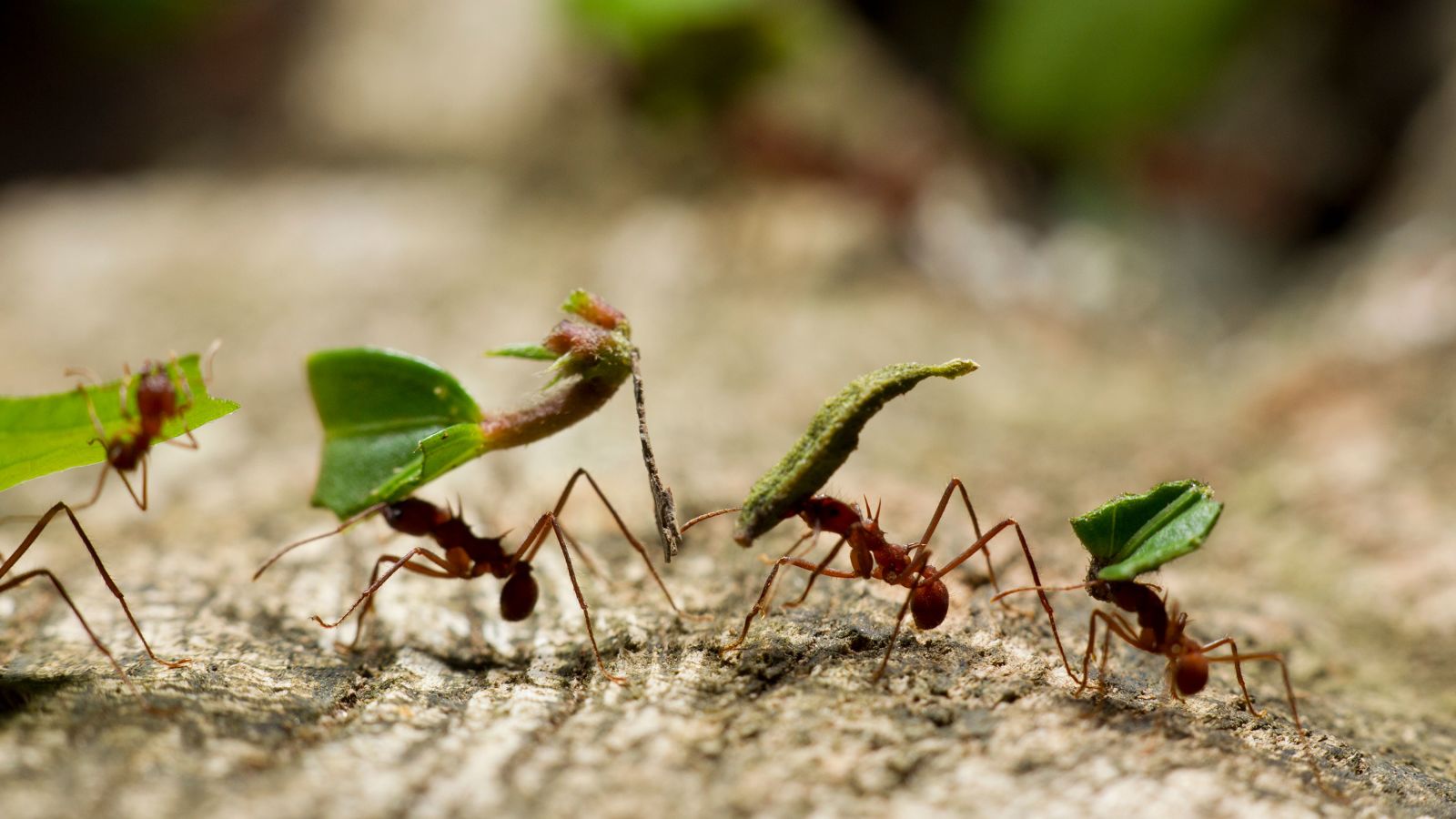See how ants breed and use "cattle" 0:57
(CNN) --
Ants are tiny in size, but not in number.
A new study estimates that there are about 20,000 billion ants on Earth at any given time.
The estimate is between two and 20 times higher than previous ones, according to the study, published Monday in the academic journal
Proceedings of the National Academy of Sciences.
"We were very surprised by the large number of ants we found," Sabine S. Nooten, an insect ecologist and temporary senior researcher at the University of Würzburg, Germany, and a co-author of the study, told CNN on Tuesday.
According to a new study, there are about 20,000 billion ants on Earth.
Leaf-cutter ants in Costa Rica's Manuel Antonio National Park.
Credit: Paul Souders/Stone RF/Getty Images
"We had practically no expectations, because the figures that were floating around before in the scientific literature were basically guesses and had very little empirical data to work with," he added.
"And so this is the novelty of our study, because we have synthesized data from many empirical studies."
According to the study, the previous global estimate of between 1,000 and 10,000 billion ants by renowned biologists Bert Hölldobler and Edward O. Wilson assumed that they constituted approximately 1% of the world's insect population estimated at 1 trillion individuals.
However, the research team for this latest study based the new estimate on observational tests of a large data set of ant samples distributed around the world.
The authors identified and evaluated 465 suitable studies, covering 1,306 sampling locations, spanning all continents and major biomes where ants live.
advertising
There are mothers much less selfless than you in the animal kingdom
According to Nooten, scientists could use the study's vast dataset, spanning 80 years, to predict what communities or environments might look like in the future.
For example, the team estimated the number of ground-dwelling ants, which densely populate tropical and subtropical regions such as South American forests, to be about 3,000 trillion.
"We may already be able to see the change over time in our data set," co-author Patrick Schultheiss, temporary principal investigator at the University of Würzburg, told CNN.
Schultheiss noted that changes in agriculture or the way forests have been cleared could have an impact on ant numbers.
It is estimated that there are about 3 quadrillion ants in the soil.
Credit: Rundstedt B. Rovillos/Moment RF/Getty Images
"No one has ever assembled a data set on ants on a global scale," said Schultheiss.
He added that while they knew from studies that ant numbers were very high in West African tropical forests compared to Arctic regions, "we didn't know what the picture was, how many there were."
According to the study, the estimated abundance of ants exceeds the combined biomass, that is, the total mass, of wild birds and mammals and is equivalent to about 20% of human biomass.
Parts of the world are headed for an insect apocalypse, study suggests
"A surprisingly common question I get asked is 'How many ants are there on Earth?'
And while there are some estimates, none of the numbers out there have felt solid," Adam Hart, professor of science communication at the University of Gloucestershire, England, told CNN.
Hart, who is also vice president of the UK's Royal Entomological Society, was not involved in the study.
"This new study, based on almost 500 studies around the world, gives us the best answer yet to this complicated question. What is surprising is not only the global figure, but also the proportion of biomass that ants represent: one fifth of the biomass of all human beings. This underlines the real importance of ants," he added.
A "moderate" figure
The data set could help monitor environmental changes through changes in the ant population.
Credit: Karunakaran Parameswaran Pillai/500px/Getty Images
The estimated global figure is almost unimaginably huge, but the study authors said it is "moderate."
This is because they were unable to collect all the data they wanted to include.
For example, many ants live underground, but no studies were available that could provide figures on how many, Schultheiss said.
There are ants in the far north and far south, like the subantarctic region, but there weren't enough studies of ants in those areas to make a mathematical estimate.
According to Schultheiss, citizen scientists could fill in these gaps, and he said that non-scientists, even students, could contribute to the data set in impactful ways, simply by picking up the leaf litter, pulling out all the ants, and counting how many there are.
"We hope to inspire people, first of all, to respect nature, to enjoy it, because it's amazing what ants can do and at what scale. But also, if they're willing to contribute to science in a very simple, even the simplest data can have enormous value," he added.
Ants






